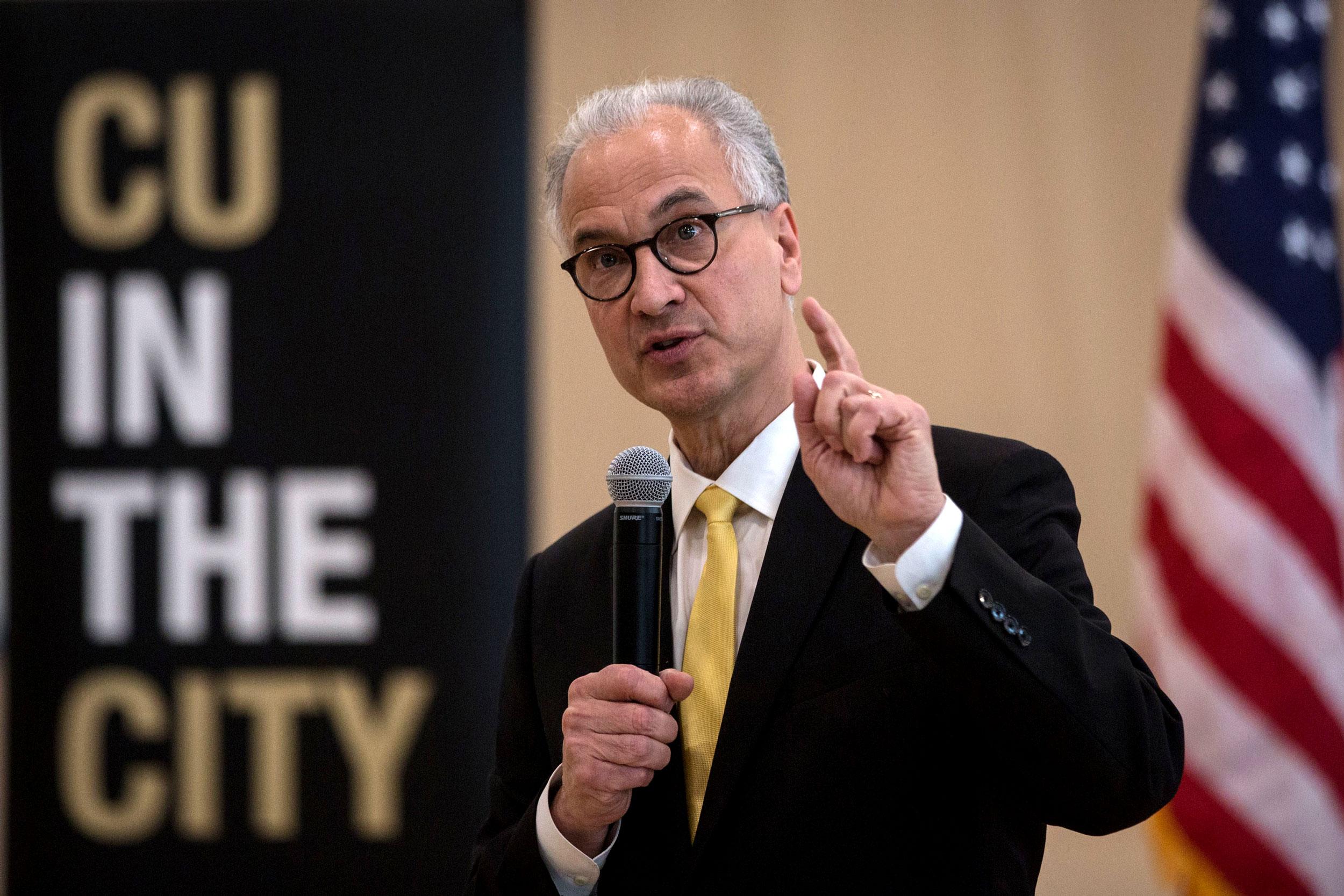
University of Colorado President Mark Kennedy was formally reprimanded Thursday by faculty on the Boulder campus for a “failure of leadership with respect to diversity, equity, and inclusion.”
The censure vote by 53 members of the Boulder Faculty Assembly, a body of 60 faculty members from different departments on campus, came Thursday afternoon.
Ultimately, the action has no immediate consequence for Kennedy, but the assembly forwarded the resolution to the Board of Regents, who will evaluate Kennedy's performance and contract this June.
Faculty alleged in a formal motion that Kennedy’s ongoing conduct, such as what they called his delayed aid to support international students during the pandemic, is counterproductive to CU’s efforts to improve diversity and inclusion on campus.
The assembly introduced the motion in early April, when several faculty members brought up areas of concern they had related to Kennedy’s past actions.
But while the resolution ultimately passed by a vote of 34-19, it was not without considerable debate. Faculty members argued that it failed to account for the progress Kennedy had made in addressing diversity, equity and inclusion on campus.
"Some of the statements that are in the current motion do not fit with reality," said David Kassoy, professor of mechanical engineering. "I find it difficult to support a motion where some of the facts are not correct."
Kassoy specifically referenced Kennedy's hiring of a chief diversity officer.
- July 1, 2019: CU’s New President Mark Kennedy Starts His Job With Long Day Of Campus Tours, Debriefings
- May 2, 2019: Board of Regents Confirms Mark Kennedy as CU president
- May 1, 2019: Mark Kennedy’s Quest For CU President May Seem Uniquely Turbulent, But To University Search Insiders That’s The Norm
- April 17, 2019: The CU System’s Contentious Presidential Nominee, Mark Kennedy, On The Record
History professor David Paradis responded by saying Kennedy’s support must extend beyond hiring.
“It's more that he isn't leading on diversity, equity and inclusion,” Paradis said. “So in particular, he has Theodosia Cook in that (diversity) office and that's great. Now, fund the office so that she has full-time employees, fund the office so that they could submit grant proposals to sustain the diversity, equity and inclusion efforts.”
Even before the vote, Kennedy responded to the censure resolution in a statement.
“I have the utmost regard for CU faculty and I respect their right to be critical of me or any CU leaders,” he said. “While we are making progress in diversity, equity and inclusion, we need to make much more, and I invite anyone interested in doing so to join me in this important work.”
Kennedy was a three-term Republican congressman from Minnesota until 2007 before moving into consulting, then academia, eventually becoming director of the graduate school of political management at George Washington University. He served as president of the University of North Dakota from 2016 to 2019 before taking over CU in July, 2019.
This is the third formal disciplinary action Kennedy faced this year. Earlier this month, CU’s student government also voted to reprimand Kennedy, citing near-identical grievances as their faculty counterparts. The CU system’s Faculty Council, which makes recommendations to the Board of Regents on behalf of faculty members on all four CU campuses, also reprimanded Kennedy in April for failing to protect the “university environment.”
Kennedy will face his yearly evaluation in June, where Regents will decide whether or not to renew his contract. While elected to the non-partisan position by a Republican-majority board, he will now face the first Democrat-run board at the university in almost 40 years.









